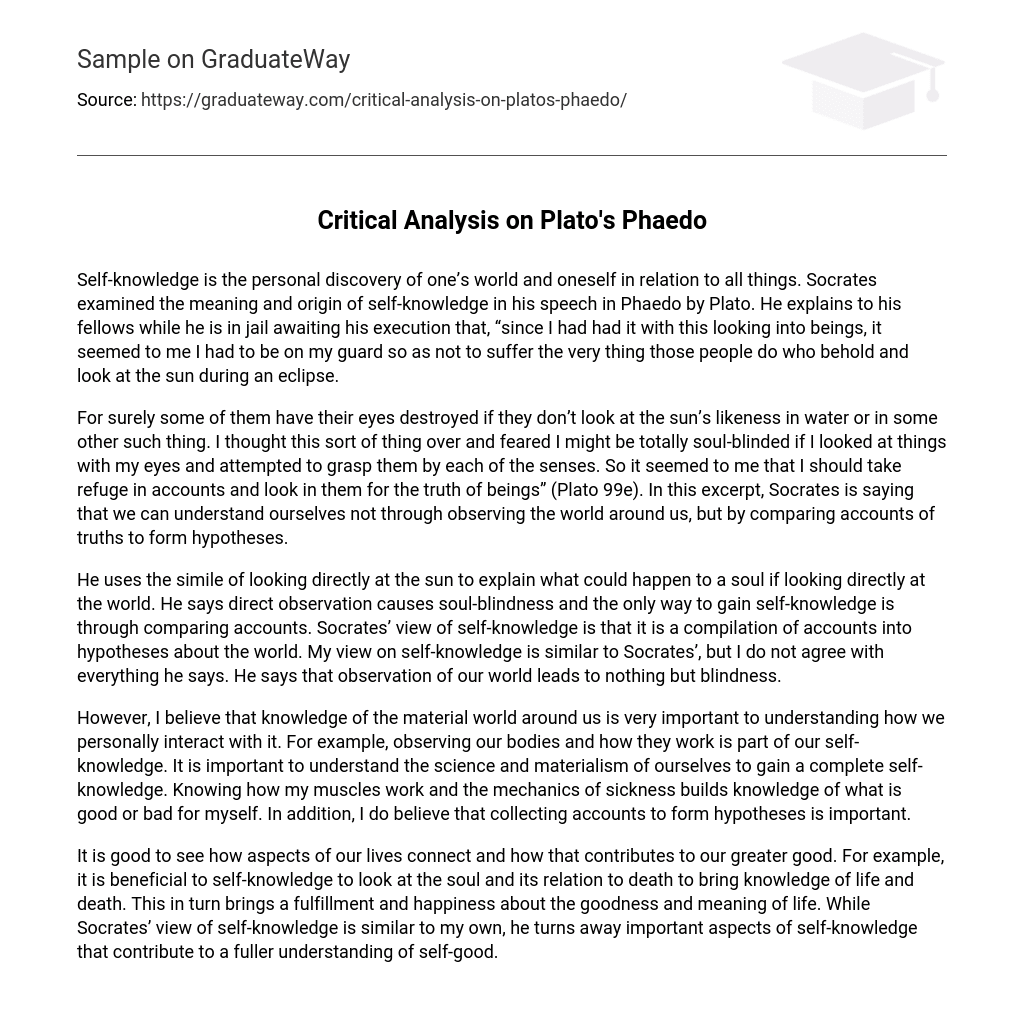Self-knowledge is the discovery of one’s world and oneself in relation to all things. In Phaedo by Plato, Socrates explores the meaning and origin of self-knowledge. While in jail awaiting his execution, he cautions his comrades about the dangers of scrutinizing beings excessively, likening it to staring at the sun during an eclipse.
According to Socrates, some people may have their eyes damaged if they do not observe the sun’s reflection in water or similar things. He reflects on this and worries that he may become completely blinded if he relies solely on his eyes and senses to comprehend things. Therefore, he believes it is better to seek refuge in accounts and find the truth about beings through them. In this passage, Socrates suggests that we can gain self-understanding by comparing different accounts of truths and forming hypotheses.
According to Socrates, observing the world is akin to gazing at the sun and can result in soul-blindness. He contends that true self-knowledge can only be attained through comparing accounts. Socrates considers self-knowledge as a collection of accounts forming hypotheses about the world. Although my perspective on self-knowledge aligns with Socrates’, I disagree with his notion that observation of our world yields solely blindness.
Nevertheless, I consider comprehending the world we inhabit to be essential for comprehending our individual engagements with it. This encompasses observing our bodies and their functionality, as it adds to our self-awareness. It is crucial to possess knowledge pertaining to the science and materialism underlying our own existence in order to completely grasp who we are. By understanding how my muscles function and the mechanics of illness, I am able to discern what actions or conditions are advantageous or harmful for myself. Additionally, I also acknowledge the significance of acquiring information in order to develop hypotheses.
Understanding the interconnectedness and contribution of various aspects in our lives is advantageous. By exploring how the soul relates to death, we can gain valuable insights into life and mortality, which ultimately leads to a sense of satisfaction and joy. Although I align with Socrates on the importance of self-knowledge, there are crucial elements that he fails to acknowledge, which deepen our comprehension of personal happiness and fulfillment.





